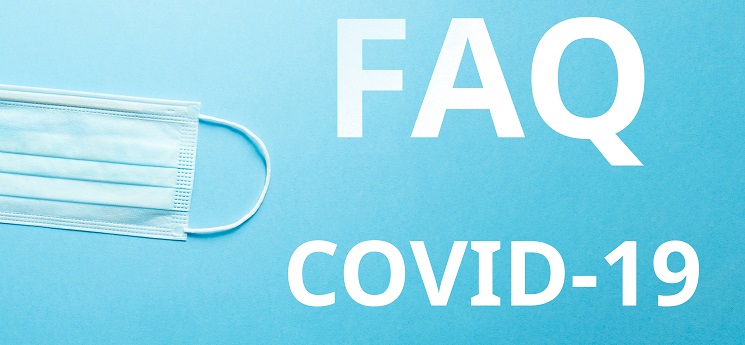What do we know about COVID-19? Given how new the disease is, how much has been learnt in the past year and how much is still unresolved, it’s no wonder we have a myriad questions. These are the key questions we’re asking.
What are coronaviruses?
Coronaviruses are a large family of viruses. Some cause illness in humans and others cause illness in animals, such as bats, camels and civets. Human coronaviruses generally cause mild illness, such as the common cold.
Rarely, animal coronaviruses can evolve to infect and spread among humans, causing severe diseases such as severe acute respiratory syndrome (SARS), which emerged in 2002, and Middle East respiratory syndrome (MERS), which emerged in 2012.
Can I pass on the virus after I’ve been vaccinated?
(Sources: BBC, Irish Times, New England Journal of Medicine)
Yes, probably.
While the vaccines protect a person who is vaccinated against disease, we still don’t know if they stop that person transmitting the virus to someone else. The primary objective of current COVID-19 vaccines is to prevent disease and, while studies are still ongoing as to whether they would have an impact on transmission, it is unlikely.
“Even after you have had both doses of the vaccine, you may still give COVID-19 to someone else and the chains of transmission will then continue,” England’s deputy chief medical officer Professor Jonathan Van-Tam has warned.
So, vaccination does not allow us to stop other important measures to prevent the spread of COVID-19. We need to continue social distancing, mask wearing, avoiding crowded indoor settings, and regular hand washing.
How do I check if I’ve already had COVID-19?
If you think you may have had COVID-19 but didn’t get a test, Allen Cheng, professor of infectious diseases epidemiology at Monash University, says you can ask your GP for a serological test.
Prof. Cheng told the Australian Financial Review (AFR) that a laboratory blood test looks for antibodies to see if an infection has been and gone. Another swab test won’t help because if the suspected infection was months ago, there may be no trace of virus left in your mucus, he said.
What will post-vaccine life look life? Globally, the requirement for masks, hand washing and social distancing will remain for some time, says Adjunct Professor Heidi Drummer from the Burnet Institute.
Keeping our international borders closed in the immediate future will give us more security.
Israel and the UAE, with their high levels of vaccination, may soon help to answer questions about the effectiveness of vaccines in blocking transmission.
Should people who have recovered from COVID-19 receive the vaccine?
Yes, they should receive the vaccine, says the New England Journal of Medicine. Some people who participated in the clinical trials had evidence of prior SARS-CoV-2 infection (based on a positive antibody test), and the vaccines were safe and effective in this group.
What is contact tracing and why is it important?
Contact tracing is a strategy to reduce transmission of many infectious diseases by identifying exposed people who may be infected and notifying them to quarantine themselves and get tested.
First, tracers identify and test potential cases based on symptoms or exposures, the Edmonton Journal explains.
Patients who test positive are asked about their contacts and places of possible exposure over the two weeks before onset (exposure information). As people can be infectious before they are ill, they are also asked who they have been in contact with and where they have been for two days prior to having symptoms until being questioned.
The original positive patient is required to go into isolation while they are infectious to ensure that they can no longer transmit infection.
The transmission information (where and to whom the positive person may have transmitted infection) is used to identify their contacts, who are at risk of developing infection at any time over the two weeks after the contact (on average, at five days after contact). The close contacts of the original positive patient are required to go into quarantine to ensure that they do not transmit the disease to others while developing symptoms.
The exposure information (to whom and where they were originally exposed) from all cases is combined to look for patterns that could show a high-risk location (e.g., bar, church, grocery store, or event).
Why is this virus so hard to control? Why do we need public health restrictions?
Unlike influenza, or SARS in 2004, the virus reaches high levels in the nose, throat and airways early in infection, and can be spread before people realise they may be getting sick, according to the British Medical Journal. People with COVID-19 can spread infection on average from two days before symptoms through to 10 days after and some get few or no symptoms at all. COVID-19 spreads quickly to contacts, causing a relatively large number of people to become severely ill. As a lot of spread happens in the first five days of even mild symptoms, isolating yourself right away and getting tested for COVID-19 is very important.
How do you know when a lockdown strategy is needed?
A partial or complete lockdown is needed if contract tracing becomes overwhelmed and transmission patterns are unknown, or there are many new cases and transmission is increasing. If we cannot isolate cases and quarantine contacts fast enough, transmission continues unless a partial or complete lockdown is used to restrict people’s movements and contacts overall. People deciding to reduce their own contacts to the minimum required, as many have, helps avoid the need for lockdown and allows them to protect themselves and their families.
What questions do you have about the coronavirus? Do you believe we know enough about COVID-19?
If you enjoy our content, don’t keep it to yourself. Share our free eNews with your friends and encourage them to sign up.
Related articles:
https://www.yourlifechoices.com.au/health/covid19/ending-the-pandemic-without-a-vaccine
https://www.yourlifechoices.com.au/health/covid19/the-contact-tracers-puzzle
https://www.yourlifechoices.com.au/health/vitamin-d-supplements-dont-help-ward-off-colds-and-flus-research

